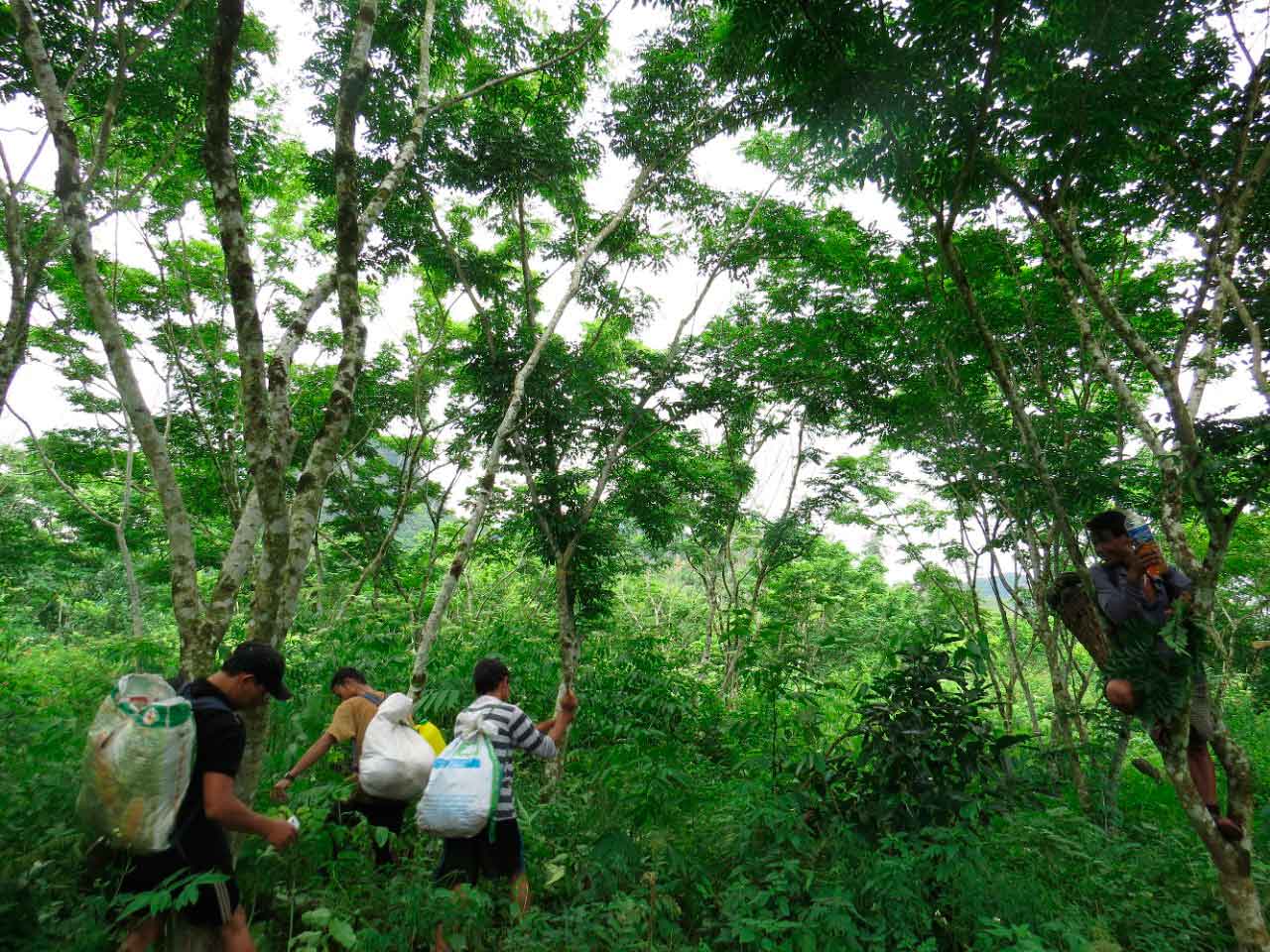[ad_1]

A Rem people vow to protect forests
Eighteen A Rem were discovered living in the stone caves of Bong Cu, Va and So Dua, perched on the Phong Nha Ke Bang limestone mountain, in 1956.
In 1992, when the border guards and Bo Trach district officials found them and persuaded them to leave the caves and settle down in a new hamlet on the Road No 20, there were 98 A Rem individuals. At present, there are 100 A Rem households with 560 members.
According to Dinh Lau, chair of Tan Trach commune, A Rem have to learn many things to adapt to the new life circumstances, including protecting the forests.
|
The life of A Rem is connectedly closely with mountains and forests. Their hamlet is located in the core area of the Phong Nha-Ke Bang forest heritage, where the biodiversity is exposed most clearly. However, A Rem do not devastate forests. They are making every effort to preserve the heritage. |
The life of A Rem is connectedly closely with mountains and forests. Their hamlet is located in the core area of the Phong Nha-Ke Bang forest heritage, where the biodiversity is exposed most clearly. However, A Rem do not devastate forests. They are making every effort to preserve the heritage.
When discovering a bee’s nest, A Rem people only take the parts with honey, and leave young bees so that the bees can continue to reproduce and generate honey. They treasure forestry products which were once the sources of food and materials for their lives.
According to Dinh Huy Tri, deputy head of the Phong Nha-Ke Bang National Park’s Forest Ranger Unit, local people are assigned to protect and develop 3,400 hectares of forests. The management board spends VND100 million to buy rice to allocate to people each month.
Under their protection area forests of trees hundreds of years old, including the Bach Xanh Nui Da (Calocedrus rupestris) forest, the rarest and most precious in Vietnam, which have been preserved undamaged.
As for the A Rem people, forests are seen as their their guardian angel who helps them overcome hunger and diseases. The forests give them food and medicinal herbs, and heal their wounds.
In Tan Trach commune, everyone is very aware of the need to protect forests. A taskforce with 12 members has been set up which is in charge of working with forest rangers to protect the forests.
A Rem people have devoted themselves to protecting the sua do (Dalbergia tonkinensis Prain) forest they planted in 2003, when they adapted to their new life, after leaving the caves permanently.
RELATED NEWS
Wild animals handed over to Phong Nha – Ke Bang national park
The magical beauty of Phong Nha Cave
Nam Hai
[ad_2]
Source link
